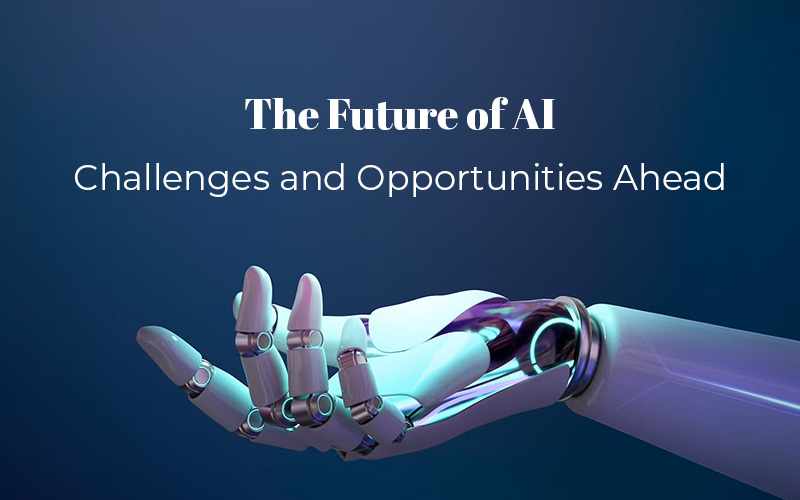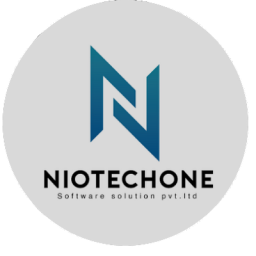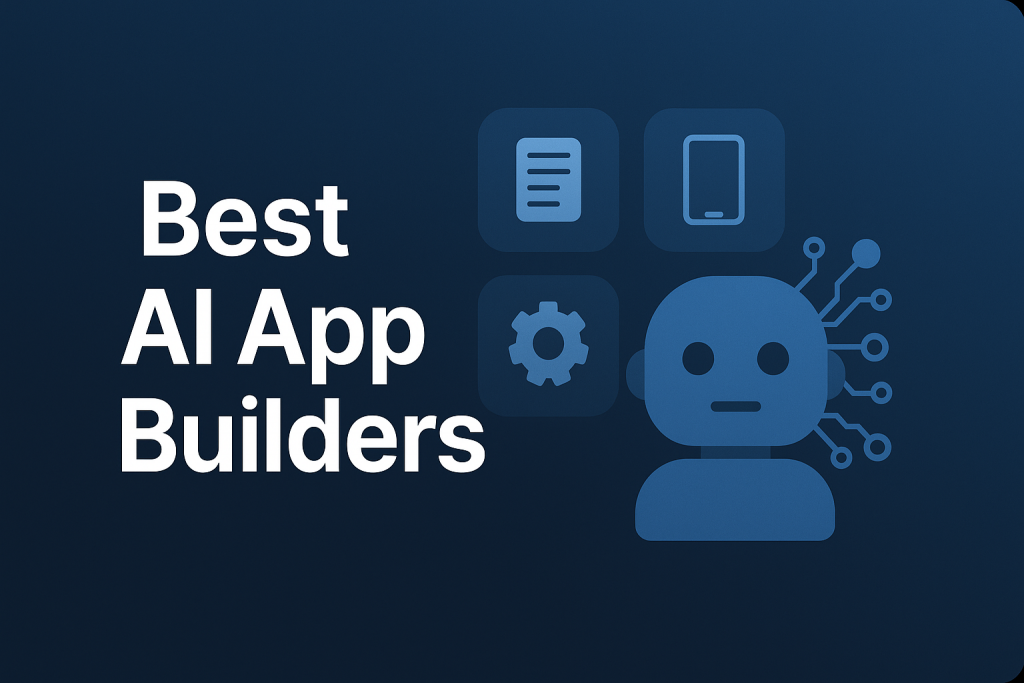
Introduction
Artificial Intelligence (AI) has moved beyond being just a futuristic concept—it’s now a practical tool reshaping industries across the globe. From personalized customer experiences to predictive analytics and intelligent automation, AI is revolutionizing how businesses operate. However, while the opportunities are immense, challenges such as ethics, data security, and workforce adaptation remain pressing concerns.
This article explores the future of AI in business, highlighting its opportunities, challenges, and the strategic path forward.
Opportunities of AI in Business
1. Enhanced Customer Experience
AI-driven chatbots, recommendation engines, and personalization algorithms help businesses understand and engage customers more effectively. For example, Netflix uses AI to suggest content, while e-commerce giants like Amazon tailor product recommendations based on user behavior.
2. Intelligent Automation
Automation powered by AI reduces repetitive tasks, minimizes human errors, and increases efficiency. Industries such as manufacturing, logistics, and finance already benefit from robotic process automation (RPA).
3. Data-Driven Decision Making
AI can analyze massive datasets to uncover trends, predict future outcomes, and support better decision-making. Businesses are increasingly relying on predictive analytics to optimize supply chains, forecast sales, and identify new market opportunities.
4. Cost Reduction
Through automation, AI helps businesses cut operational costs. For example, customer support centers implementing AI-powered virtual assistants reduce staffing costs while maintaining 24/7 availability.
5. New Business Models
AI is driving the creation of entirely new industries and services. From AI-powered healthcare diagnostics to autonomous vehicles and fintech solutions, businesses are innovating faster than ever.
Challenges of AI in Business
1. Data Privacy and Security
AI systems rely on large volumes of data, raising concerns about security and user privacy. Companies must comply with regulations like GDPR to ensure ethical data usage.
2. Workforce Displacement
Automation may replace certain jobs, creating fear of unemployment. Businesses must address this by reskilling employees and shifting focus to roles that require human creativity and strategic thinking.
3. High Implementation Costs
While AI can reduce costs in the long run, the initial investment in infrastructure, training, and technology adoption can be a significant challenge for small and medium-sized enterprises (SMEs).
4. Ethical and Bias Issues
AI systems can unintentionally reinforce biases if trained on biased data. For example, recruitment AI tools have faced criticism for favoring certain demographics. Transparent and fair AI systems are essential.
5. Regulatory Uncertainty
Governments worldwide are still defining policies around AI usage. Businesses face uncertainty around compliance, intellectual property rights, and accountability.
The Future of AI in Business
AI-Powered Personalization – Businesses will increasingly use AI to deliver hyper-personalized products, services, and marketing strategies.
Human-AI Collaboration – Rather than replacing humans, AI will complement human decision-making, enabling better productivity.
AI in Cybersecurity – AI will be central to defending businesses against growing cyber threats.
Sustainability with AI – Companies will use AI to optimize resources, reduce waste, and build sustainable business models.
Democratization of AI – As AI tools become more affordable and accessible, even small businesses will integrate AI into their daily operations.
How Businesses Should Prepare
Invest in AI Talent – Hiring skilled AI professionals or partnering with AI development companies will be crucial.
Adopt Responsible AI – Ethical guidelines and transparent AI systems should be a top priority.
Focus on Reskilling – Businesses must reskill employees for AI-driven roles.
Strengthen Data Governance – Ensuring secure, high-quality, and unbiased data will be vital.
Conclusion
The future of artificial intelligence in business holds immense promise, but realizing its full potential requires balancing opportunities with challenges. Companies that embrace AI responsibly, invest in innovation, and prepare their workforce will gain a competitive advantage in the digital era.
AI is not about replacing humans—it’s about empowering them to work smarter, faster, and more efficiently. Businesses that understand this synergy will lead the future.
FAQs
1. How is AI currently used in businesses?
AI is widely used in customer service (chatbots, virtual assistants), marketing personalization, predictive analytics, fraud detection, logistics optimization, and process automation across industries.
2. What are the biggest benefits of AI for businesses?
The main benefits include cost reduction, increased efficiency, better customer experience, improved decision-making, and opportunities to create new business models.
3. Will AI replace human jobs completely?
AI will automate repetitive and rule-based tasks, but it will not replace humans entirely. Instead, it will create new roles requiring creativity, problem-solving, and strategic thinking, leading to human-AI collaboration.
4. What are the risks of adopting AI in business?
Key risks include data privacy issues, algorithmic bias, workforce displacement, high implementation costs, and regulatory uncertainties. Businesses must adopt responsible AI practices to mitigate these risks.
5. How can small and medium businesses (SMEs) use AI?
SMEs can leverage AI for digital marketing personalization, customer engagement through chatbots, inventory management, and data-driven decision-making. Affordable cloud-based AI tools make it easier for SMEs to adopt AI without heavy investment.








Write a comment ...